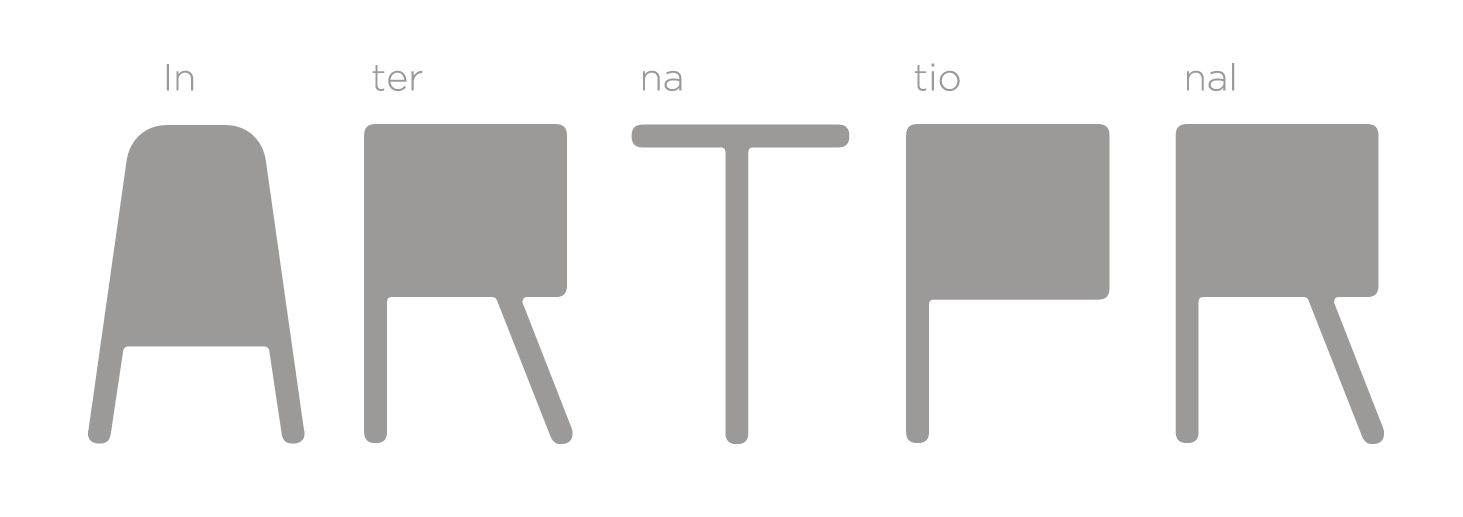6th Moscow International Biennale of Contemporary Art. Main Project: How to Live Together? View from the Center of the City in the Heart of Eurasia Island. Organized by: Ministry of Culture of the Russian Federation, Organizing Committee of 6th Moscow International Biennale of Contemporary Art. Venue: VDNKh, Pavilion No. 1, Moscow
Now in its twelfth year, the Moscow Biennale of Contemporary Art has become one of the main international events in its field, thanks to the participation of leading international artists, curators, critics and philosophers and to its presentation in unusual venues. The 6th Moscow Biennale continues this tradition, but will change its structure: The Biennale will take place over ten days, and then a documentary exhibition about it will be presented for the duration of the following month.
The International Expert Committee invited Bart De Baere, Director of MUHKA, Antwerp; Defne Ayas, Director of Witte de With Center for Contemporary Art, Rotterdam; and Nicolaus Schafhausen, Director of Kunsthalle Wien, Vienna, as the co-curators. Located in the Pavilion No.1 of VDNKh, it is here that the Moscow Biennale will evolve, as a think tank in real time. VDNKh will become a heterotopia — another space, a realized utopia, a place that lives by its own rules and within which unexpected understanding may be gained. Thus, artists, curators, visitors and the city might find clues about how to live together in a new way.
From September 22 to October 1, VDNKh will become a site to embrace art while thinking in action, encompassing daily keynotes by thinkers, artists working in situ and presenting their performances, as well as masterclasses with Russian and international cultural figures. Artists such as Flaka Haliti, Rana Hamadeh, Fabrice Hybert, Suchan Kinoshita, Hanne Lippard, Ho Tzu Nyen, Amalia Ulman, Anton Vidokle, Peter Wächtler, Qiu Zhijie, writers such as Mian Mian, thinkers such as Tom McDonough, Maya van Leemput, Saskia Sassen and Yanis Varoufakis will convene to find answers to questions such as What are the fundamentals of a better life? What are the grounds on which to formulate a constituency? Who are we (people, city, nation, empire, etc.)? What will Moscow be like in the future? While primarily addressing a highly urgent question: How can we live together?
After this ten-day gathering, from October 3 to October 11, there will be an exhibition of the realized works, as well as photographic and video documentation of the event’s discussions and performances.
In addition, the Moscow Biennale will include the ancillary programs’ Special Guests, Special Projects and Parallel Program, presenting works by artists who define the face of Russian and Western art today. Projects by independent Russian and international curators will be presented at leading venues, including the Tretyakov Gallery, Garage Museum of Contemporary Art, and the Jewish Museum and Tolerance Center.
The 6th Moscow Biennale unfolds as a declaration of intent and an invitation to engage. The project, organized and supported by the Ministry of Culture of the Russian Federation, advances the development of new cultural spaces in Moscow, while the question mark in its title requires discussion and participation.
The curators are not proposing answers; instead they aim to create a situation that addresses the future of humankind, art in its numerous forms and the Eurasian tradition of Russia, all in the setting of the VDNKh, Moscow’s All-Russia Exhibition Centre. A site symbolic of the USSR’s bringing together of traditions, the VDNKh embodies a history of Soviet nationhood as a village of pavilions and fountains. As the curators put it, “Art offers the possibility to gather, the possibility to cease being one, to become two, and perhaps more. It bears the potential to transcend the interpersonal sphere into a veritable soviet.” The potential implied is that of a return to communal, proto-Soviet roots, a search for rapprochement and friendship without loss of individuality.
The International Expert Committee invited Bart De Baere, Director of MUHKA, Antwerp; Defne Ayas, Director of Witte de With Center for Contemporary Art, Rotterdam; and Nicolaus Schafhausen, Director of Kunsthalle Wien, Vienna, as the co-curators. Located in the Pavilion No.1 of VDNKh, it is here that the Moscow Biennale will evolve, as a think tank in real time. VDNKh will become a heterotopia — another space, a realized utopia, a place that lives by its own rules and within which unexpected understanding may be gained. Thus, artists, curators, visitors and the city might find clues about how to live together in a new way.
From September 22 to October 1, VDNKh will become a site to embrace art while thinking in action, encompassing daily keynotes by thinkers, artists working in situ and presenting their performances, as well as masterclasses with Russian and international cultural figures. Artists such as Flaka Haliti, Rana Hamadeh, Fabrice Hybert, Suchan Kinoshita, Hanne Lippard, Ho Tzu Nyen, Amalia Ulman, Anton Vidokle, Peter Wächtler, Qiu Zhijie, writers such as Mian Mian, thinkers such as Tom McDonough, Maya van Leemput, Saskia Sassen and Yanis Varoufakis will convene to find answers to questions such as What are the fundamentals of a better life? What are the grounds on which to formulate a constituency? Who are we (people, city, nation, empire, etc.)? What will Moscow be like in the future? While primarily addressing a highly urgent question: How can we live together?
After this ten-day gathering, from October 3 to October 11, there will be an exhibition of the realized works, as well as photographic and video documentation of the event’s discussions and performances.
In addition, the Moscow Biennale will include the ancillary programs’ Special Guests, Special Projects and Parallel Program, presenting works by artists who define the face of Russian and Western art today. Projects by independent Russian and international curators will be presented at leading venues, including the Tretyakov Gallery, Garage Museum of Contemporary Art, and the Jewish Museum and Tolerance Center.
The 6th Moscow Biennale unfolds as a declaration of intent and an invitation to engage. The project, organized and supported by the Ministry of Culture of the Russian Federation, advances the development of new cultural spaces in Moscow, while the question mark in its title requires discussion and participation.
The curators are not proposing answers; instead they aim to create a situation that addresses the future of humankind, art in its numerous forms and the Eurasian tradition of Russia, all in the setting of the VDNKh, Moscow’s All-Russia Exhibition Centre. A site symbolic of the USSR’s bringing together of traditions, the VDNKh embodies a history of Soviet nationhood as a village of pavilions and fountains. As the curators put it, “Art offers the possibility to gather, the possibility to cease being one, to become two, and perhaps more. It bears the potential to transcend the interpersonal sphere into a veritable soviet.” The potential implied is that of a return to communal, proto-Soviet roots, a search for rapprochement and friendship without loss of individuality.
6th Moscow International Biennale of Contemporary Art. Main Project: How to Live Together? View from the Center of the City in the Heart of Eurasia Island. Organized by: Ministry of Culture of the Russian Federation, Organizing Committee of 6th Moscow International Biennale of Contemporary Art. Venue: VDNKh, Pavilion No. 1, Moscow
Now in its twelfth year, the Moscow Biennale of Contemporary Art has become one of the main international events in its field, thanks to the participation of leading international artists, curators, critics and philosophers and to its presentation in unusual venues. The 6th Moscow Biennale continues this tradition, but will change its structure: The Biennale will take place over ten days, and then a documentary exhibition about it will be presented for the duration of the following month.
The International Expert Committee invited Bart De Baere, Director of MUHKA, Antwerp; Defne Ayas, Director of Witte de With Center for Contemporary Art, Rotterdam; and Nicolaus Schafhausen, Director of Kunsthalle Wien, Vienna, as the co-curators. Located in the Pavilion No.1 of VDNKh, it is here that the Moscow Biennale will evolve, as a think tank in real time. VDNKh will become a heterotopia — another space, a realized utopia, a place that lives by its own rules and within which unexpected understanding may be gained. Thus, artists, curators, visitors and the city might find clues about how to live together in a new way.
From September 22 to October 1, VDNKh will become a site to embrace art while thinking in action, encompassing daily keynotes by thinkers, artists working in situ and presenting their performances, as well as masterclasses with Russian and international cultural figures. Artists such as Flaka Haliti, Rana Hamadeh, Fabrice Hybert, Suchan Kinoshita, Hanne Lippard, Ho Tzu Nyen, Amalia Ulman, Anton Vidokle, Peter Wächtler, Qiu Zhijie, writers such as Mian Mian, thinkers such as Tom McDonough, Maya van Leemput, Saskia Sassen and Yanis Varoufakis will convene to find answers to questions such as What are the fundamentals of a better life? What are the grounds on which to formulate a constituency? Who are we (people, city, nation, empire, etc.)? What will Moscow be like in the future? While primarily addressing a highly urgent question: How can we live together?
After this ten-day gathering, from October 3 to October 11, there will be an exhibition of the realized works, as well as photographic and video documentation of the event’s discussions and performances.
In addition, the Moscow Biennale will include the ancillary programs’ Special Guests, Special Projects and Parallel Program, presenting works by artists who define the face of Russian and Western art today. Projects by independent Russian and international curators will be presented at leading venues, including the Tretyakov Gallery, Garage Museum of Contemporary Art, and the Jewish Museum and Tolerance Center.
The 6th Moscow Biennale unfolds as a declaration of intent and an invitation to engage. The project, organized and supported by the Ministry of Culture of the Russian Federation, advances the development of new cultural spaces in Moscow, while the question mark in its title requires discussion and participation.
The curators are not proposing answers; instead they aim to create a situation that addresses the future of humankind, art in its numerous forms and the Eurasian tradition of Russia, all in the setting of the VDNKh, Moscow’s All-Russia Exhibition Centre. A site symbolic of the USSR’s bringing together of traditions, the VDNKh embodies a history of Soviet nationhood as a village of pavilions and fountains. As the curators put it, “Art offers the possibility to gather, the possibility to cease being one, to become two, and perhaps more. It bears the potential to transcend the interpersonal sphere into a veritable soviet.” The potential implied is that of a return to communal, proto-Soviet roots, a search for rapprochement and friendship without loss of individuality.
The International Expert Committee invited Bart De Baere, Director of MUHKA, Antwerp; Defne Ayas, Director of Witte de With Center for Contemporary Art, Rotterdam; and Nicolaus Schafhausen, Director of Kunsthalle Wien, Vienna, as the co-curators. Located in the Pavilion No.1 of VDNKh, it is here that the Moscow Biennale will evolve, as a think tank in real time. VDNKh will become a heterotopia — another space, a realized utopia, a place that lives by its own rules and within which unexpected understanding may be gained. Thus, artists, curators, visitors and the city might find clues about how to live together in a new way.
From September 22 to October 1, VDNKh will become a site to embrace art while thinking in action, encompassing daily keynotes by thinkers, artists working in situ and presenting their performances, as well as masterclasses with Russian and international cultural figures. Artists such as Flaka Haliti, Rana Hamadeh, Fabrice Hybert, Suchan Kinoshita, Hanne Lippard, Ho Tzu Nyen, Amalia Ulman, Anton Vidokle, Peter Wächtler, Qiu Zhijie, writers such as Mian Mian, thinkers such as Tom McDonough, Maya van Leemput, Saskia Sassen and Yanis Varoufakis will convene to find answers to questions such as What are the fundamentals of a better life? What are the grounds on which to formulate a constituency? Who are we (people, city, nation, empire, etc.)? What will Moscow be like in the future? While primarily addressing a highly urgent question: How can we live together?
After this ten-day gathering, from October 3 to October 11, there will be an exhibition of the realized works, as well as photographic and video documentation of the event’s discussions and performances.
In addition, the Moscow Biennale will include the ancillary programs’ Special Guests, Special Projects and Parallel Program, presenting works by artists who define the face of Russian and Western art today. Projects by independent Russian and international curators will be presented at leading venues, including the Tretyakov Gallery, Garage Museum of Contemporary Art, and the Jewish Museum and Tolerance Center.
The 6th Moscow Biennale unfolds as a declaration of intent and an invitation to engage. The project, organized and supported by the Ministry of Culture of the Russian Federation, advances the development of new cultural spaces in Moscow, while the question mark in its title requires discussion and participation.
The curators are not proposing answers; instead they aim to create a situation that addresses the future of humankind, art in its numerous forms and the Eurasian tradition of Russia, all in the setting of the VDNKh, Moscow’s All-Russia Exhibition Centre. A site symbolic of the USSR’s bringing together of traditions, the VDNKh embodies a history of Soviet nationhood as a village of pavilions and fountains. As the curators put it, “Art offers the possibility to gather, the possibility to cease being one, to become two, and perhaps more. It bears the potential to transcend the interpersonal sphere into a veritable soviet.” The potential implied is that of a return to communal, proto-Soviet roots, a search for rapprochement and friendship without loss of individuality.



